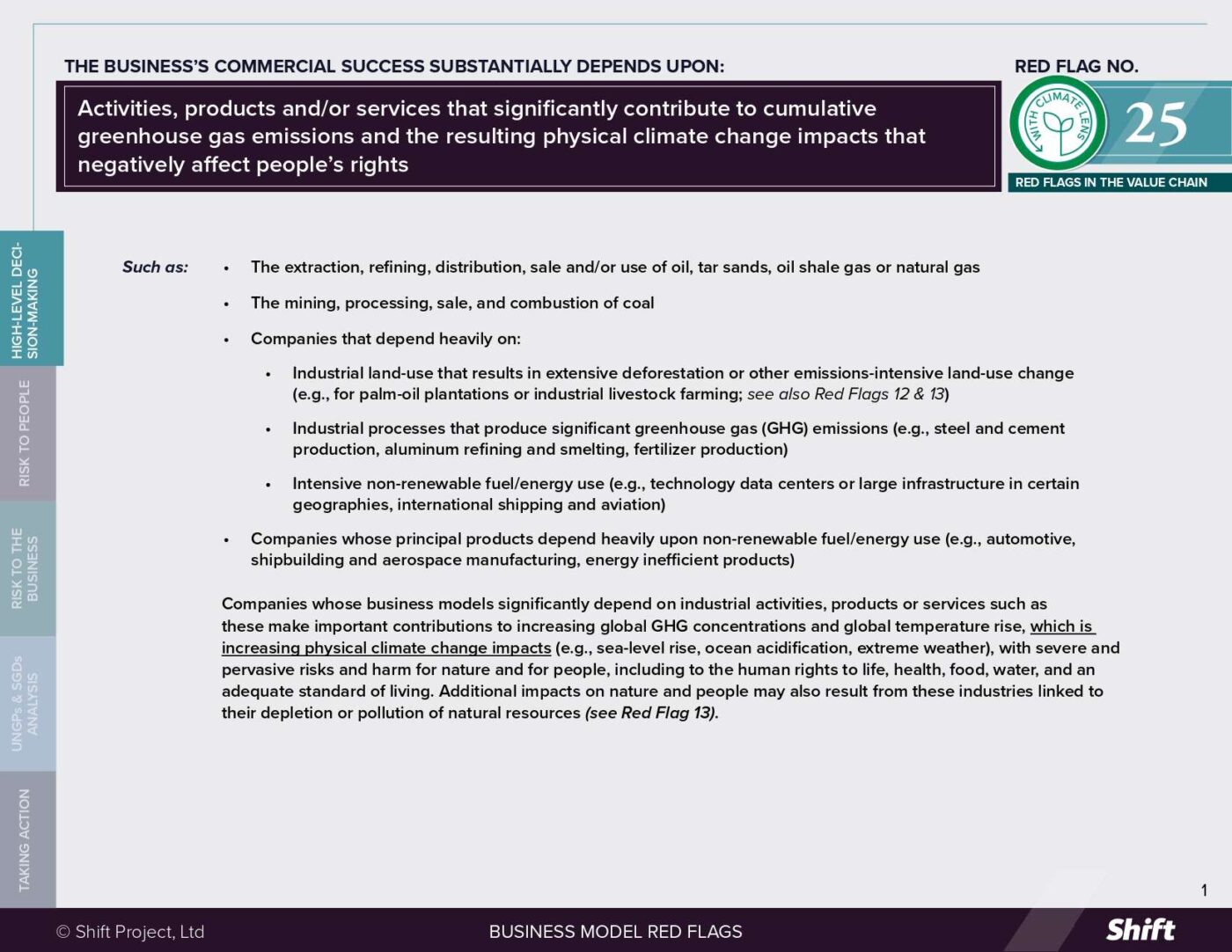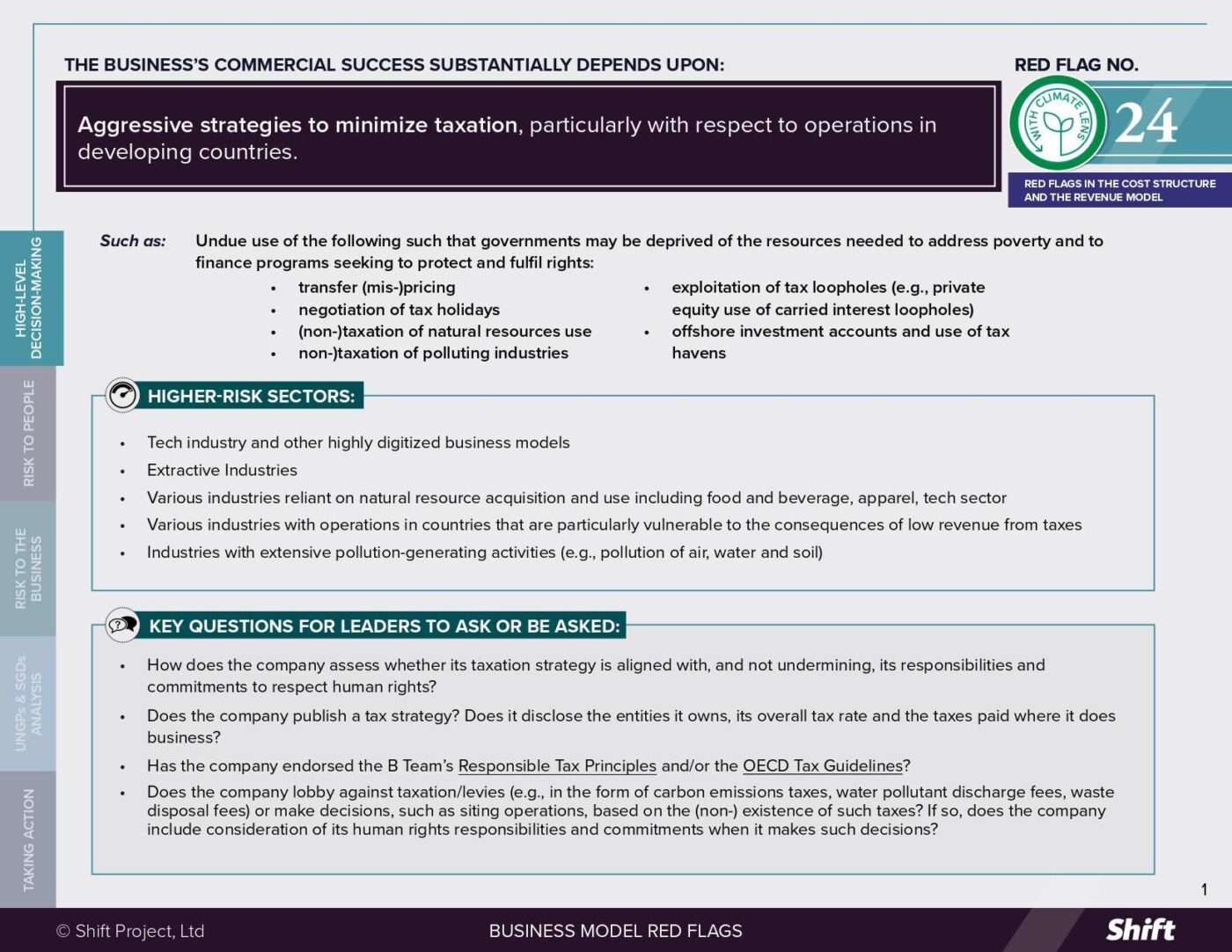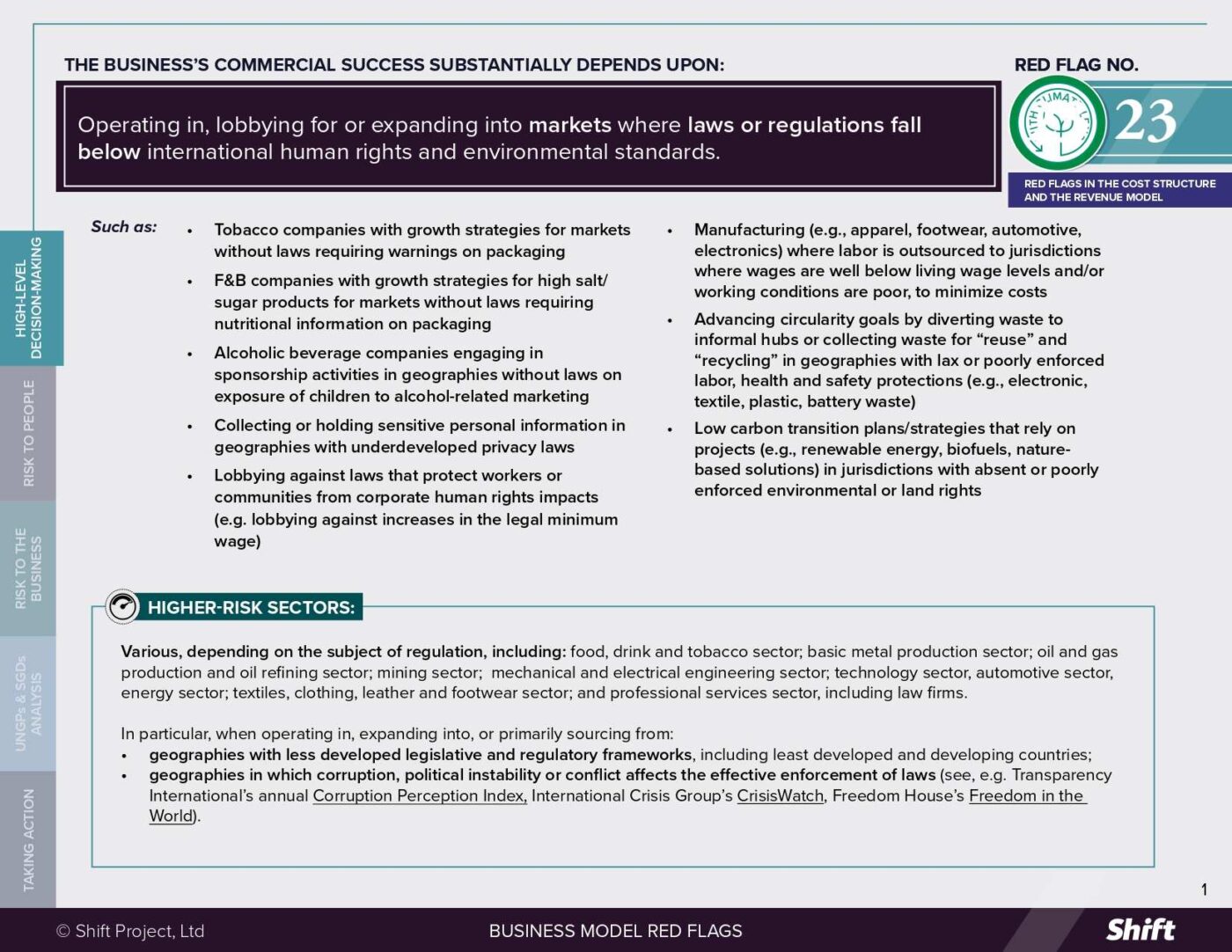Update: In January 2017 the Business and Sustainable Development Commission, which commissioned this report, published its position paper on business’s role in sustainable development, Better Business, Better World. That position paper draws on this report and strongly supports its message that respect for human rights must be at the heart of any company’s efforts to contribute to the Sustainable Development Goals.
Companies’ single greatest opportunity to contribute to human development lies in advancing respect for the human rights of workers and communities touched by their value chains. This position is set out in a new paper published today by the Business and Sustainable Development Commission and authored by Shift.
The paper’s author, Shift President and Co-Founder Caroline Rees, make the case that companies make a mistake when they assume that their best chance to have a positive social impact is through philanthropy, social investment or new business initiatives and models such as “shared value.” While these can bring valuable benefits, they fail to leverage companies’ most immediate and powerful connection to people around the world: their existing operations and value chains. | Also see: Caroline Ree’s Viewpoint on this topic from September 2016
“For too long companies have believed – or been told – that respecting human rights is ‘just’ a matter of compliance or ‘do no harm’ – that it is not ‘innovative’ or ‘mature.’ Yet the truth is quite the opposite. Companies working to respect human rights across their entire corporate social footprint – across their operations and into their value chains – are doing some of the most exciting innovating of all, with the potential for transformative impact on the lives of millions of people,” said author Caroline Rees.
Companies don’t need to look far for inspiration. In the paper, Rees states that the core of this opportunity to contribute to human development lies in implementing the existing global standard about companies’ impacts on people: the UN Guiding Principles on Business and Human Rights. The Guiding Principles are strongly backed by companies, governments, investors, trade unions and civil society. They set out the need for all companies to drive respect for human rights across their business relationships as well as their own activities. The paper argues that by applying resources, leadership and collaborative energies to this task, companies can achieve uniquely far-reaching and sustainable positive impacts.
The UN Guiding Principles were authored by former Special Representative of the UN Secretary-General Professor John Ruggie, who is also the Chair of Shift. Giving a keynote address today at the United Nations, Professor Ruggie gave his address on the topic of business contributions to the Sustainable Development Goals, drawing on the paper’s findings. | See full text of John Ruggie’s speech
“The labor of roughly one in six workers in the world today is part of multinational value chains. And many of the workers in multinational value chains have families and live in communities, which suffer the ill effects or reap the benefits from how those workers are treated. The numbers add up very quickly to reach perhaps two billion people or more out of the total world population of 7.4 billion. If companies make efforts to ensure those people are treated with respect – that is transformative impact at scale,” said Professor Ruggie. | Also see: Professor Ruggie’s letter to the Business and Sustainable Development Commission, February 2016
The paper is one of a series commissioned and published by the Business and Sustainable Development Commission. In January 2017 the Commission will publish a position paper that draws on the findings of all the commissioned studies, including the one authored by Shift. According to the Commission, this report, “will serve as the foundation from which [the Commission] will launch a number of activities to inspire and mobilize a growing number of business leaders to align their companies with social and environmental impact.”



